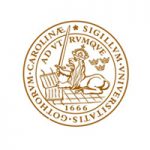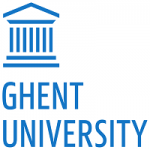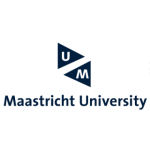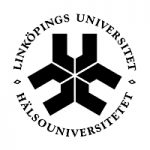项目介绍
Lund University was founded in 1666 and is repeatedly ranked among the world’s top universities. The University has around 47 000 students and more than 8 800 staff based in Lund, Helsingborg and Malmö. We are united in our efforts to understand, explain and improve our world and the human condition.
Lund University welcomes applicants with diverse backgrounds and experiences. We regard gender equality and diversity as a strength and an asset.
Subject description
Biology is the broad subject about all living things. It encompasses everything from processes at the molecular and cellular level to global processes at ecosystem level. The subject is divided into a range of sub-disciplines and specialisations. The PhD programme at the Department of Biology includes many of these specialisations, from molecular biology to applied ecology, from viruses and individual cells to evolutionary biology and global biodiversity. Taking on research studies at the Department of Biology generally means focusing on a delimited part of the research area of biology and may include field studies, experiments, theoretical studies, or a combination of these.
Work duties
The main duties of doctoral students are to devote themselves to their research studies which includes participating in research projects and third cycle courses. The work duties can also include teaching and other departmental duties, up to 20%.
Oxygen-depleted environments, such as aquatic sediments, are widespread on our planet. While often considered “anoxic dead zones”, these zones support diverse life, including eukaryotic microbes. These eukaryotes exhibit specialized metabolism especially in their mitochondria. The goal of this PhD project is to explore the mitochondrial biology of anaerobic eukaryotes to understand how their metabolism and organelle function has evolved in adaptation to environments without oxygen. We will focus on the anaerobic respiratory chain (electron transport chain), oxygen detoxification pathways and hydrogen transfer metabolism that have co-evolved in distinct lineages of anaerobes that inhabit the Baltic Sea. This will be accomplished by sequencing the transcriptomes of different unicellular eukaryotes. The student will investigate the functional diversity and evolution of anaerobic respiratory chains using bioinformatics and phylogenetic analysis (e.g., ancestral state reconstruction).
The prospective doctoral candidate will join the Molecular Biosciences Division in the Biology Department at Lund University under the supervision of Dr. Courtney Stairs and Dr. Erik Selander.
Admission requirements
A person meets the general admission requirements for third-cycle courses and study programmes if he or she:
- has been awarded a second-cycle qualification, or
- has satisfied the requirements for courses comprising at least 240 credits of which at least 60 credits were awarded in the second cycle, or
- has acquired substantially equivalent knowledge in some other way in Sweden or abroad.
A person meets the specific admission requirements for third cycle studies in Biology if he or she has passed an independent project (for example a degree project) of at least 30 credits in a relevant subject and have good oral and written proficiency in English.
Additional requirements
- MSc in biology or bioinformatics or similar with expertise in microbial genomics
- Excellent oral and written proficiency in English.
- Demonstrated ability for proactive and independent work.
- Practical experience in molecular biology or cell biology of prokaryotic or eukaryotic microorganisms, especially metagenomics and single-cell transcriptomics.
- Prior experience with metabolic modelling and genome-scale metabolic reconstruction (e.g. using the Python package COBRApy).
- Bioinformatics: experience in phylogenetics and differential expression analysis (e.g. using the R package DESeq2).
In addition to the mandatory requirements, documented experience in the following areas will be considered as strong merits:
- Investigations of non-model prokaryotic or eukaryotic microorganisms
- Experience with mitochondrial biochemistry or physiology and mitochondrial metabolism reconstruction
Assessment criteria
Selection for third-cycle studies is based on the student’s potential to profit from such studies. The assessment of potential is made primarily on the basis of academic results from the first and second cycle. Special attention is paid to the following:
- Knowledge and skills relevant to the thesis project and the subject of study.
- An assessment of ability to work independently and to formulate and tackle research problems.
- Written and oral communication skills
- Other experience relevant to the third-cycle studies, for example professional experience.
Consideration will also be given to strong collaborative skills, drive and independence, and how the applicant, through his or her experience and skills, is deemed to have the abilities necessary for successfully completing the third cycle programe.
Terms of employment
Only those admitted to third cycle studies may be appointed to a doctoral studentship. Third cycle studies consist of full-time studies for 4 years. A doctoral studentship is a fixed-term employment of a maximum of 5 years (including 20% departmental duties). Doctoral studentships are regulated in the Higher Education Ordinance (1993:100), chapter 5, 1–7 §§.
Instructions on how to apply
Applications shall be written in English and include a cover letter stating the reasons why you are interested in the postgraduate education programme and in what way the research project corresponds to your interests and educational background. The application must also contain a CV, degree certificate or equivalent, and other documents you wish to be considered (academic transcripts, publications).
Specific instructions for the CV:
- Two pages maximum
- MSc degree information and BSc thesis title (if applicable)
Specific instructions for the cover letter:
- Maximum of one page
- Include the contact information for 2 references
- Clearly motivate why you are interested in the project
- Include 1-2 sentences about your favourite enzyme.
The Faculty of Science conducts research and education within Biology, Astronomy, Physics, Geosciences, Chemistry, Mathematics and Environmental Science. The Faculty is organized into eight departments, gathered in the northern campus area. The Faculty has approximately 1500 students, 330 PhD students and 700 employees.
联系方式
电话: +46 (0)46 222 0000相关项目推荐
KD博士实时收录全球顶尖院校的博士项目,总有一个项目等着你!






